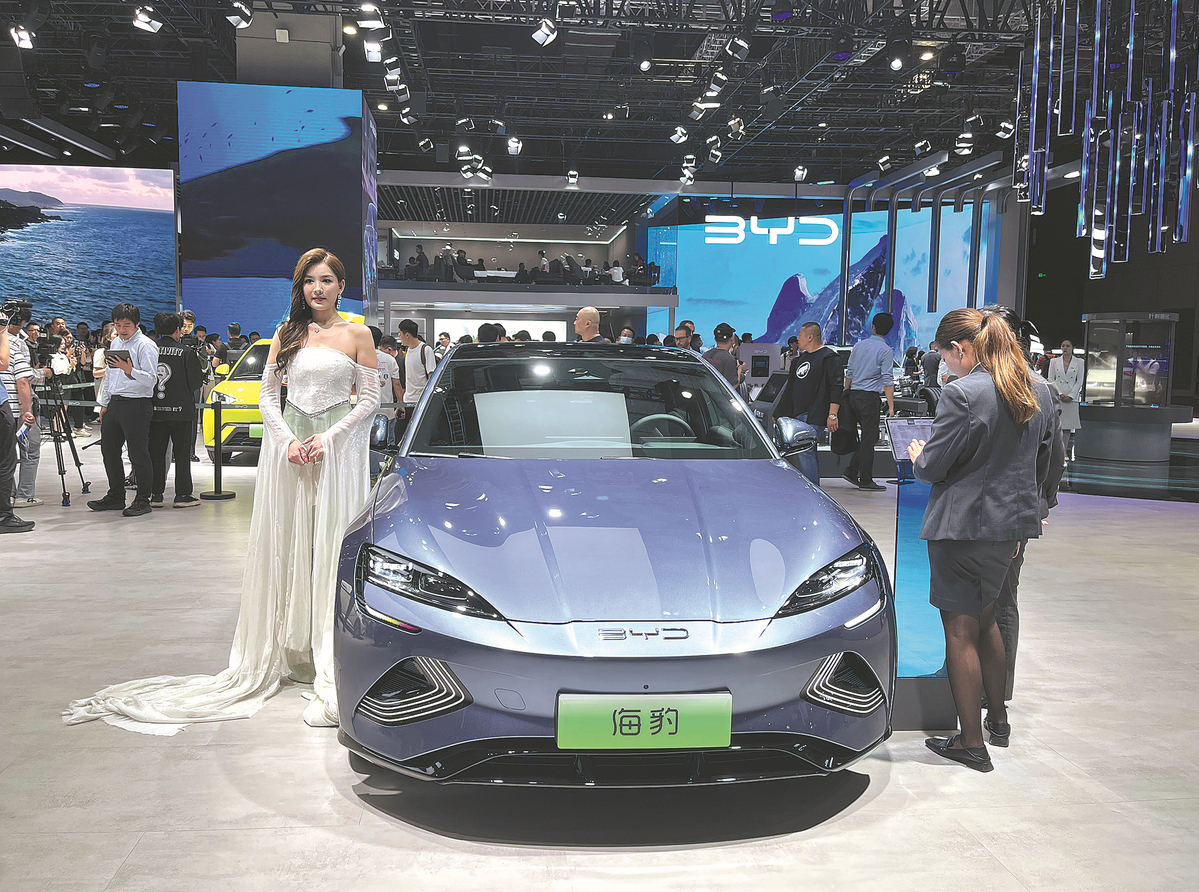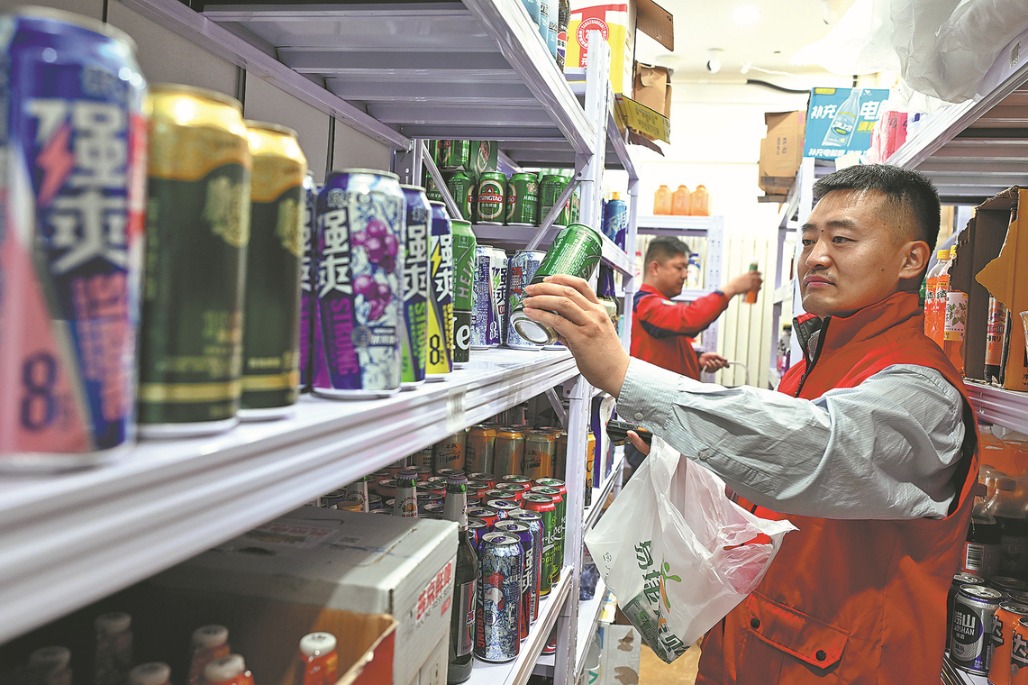Chinese new energy vehicle makers rev up global reach


Domestic brands confident as investment boosted across ASEAN and South American markets
As China-made electric vehicles are increasing in popularity overseas, Chinese carmakers are investing in the construction of overseas manufacturing facilities to explore the vast opportunities in markets ranging from Southeast Asia to South America.
SAIC Motor, China's largest carmaker by sales, said last week that it has started construction of a new energy industrial park in Thailand.
The Thai government has recently made it a clear goal to grow the country into a regional hub of EV production, with EVs set to account for 30 percent of local vehicle production by 2030.
SAIC said the park, located in Chonburi province and covering 120,000 square meters, is expected to focus on the localized production of key auto parts for the company's new energy vehicles.
The Phase I construction of the park is estimated to be completed this year, while complete construction of the park will be finished in 2025. SAIC said several major core and key component enterprises have expressed their intentions to settle in the industrial park.
As early as 2013, SAIC teamed up with Charoen Pokphand Group to found SAIC Motor-CP, a joint venture, in its bid to develop the vast market in the Association of Southeast Asian Nations.
SAIC's MG brand, which entered the Thai market in 2013, has become one of the most popular brands among local Thai customers.
Local Thai media outlet AutoLife reported that six of the top 10 EV models in the first quarter of this year were from Chinese brands, ranging from SAIC and Hozon to BYD and Great Wall Motors.
Combined, Chinese vehicles accounted for nearly 78 percent of the Thai EV market in the first quarter of this year, with the rest of the market shared by models from Tesla and Volvo.
The potential has encouraged BYD, China's largest NEV maker, to build its first overseas NEV plant in the country.
Located in the coastal province of Rayong, the plant, which started construction in March, is scheduled to see vehicles roll out in 2024, with an annual capacity of 150,000 NEVs.
It will serve as a hub for BYD's EV production and sales in Thailand and neighboring member countries of ASEAN.
"This move will not only create more job opportunities and drive economic development in Thailand, but will also promote the deep integration of the new energy vehicle industries in China and Thailand," said Wang Liping, minister-counsellor for economic and commercial affairs at the Chinese embassy in Thailand, in an interview with Xinhua News Agency.
Construction also began in March on Hozon's plant in Thailand, which has a designated annual production capacity of 20,000 vehicles and is due to start operating early next year.
Thailand is not the only destination for Chinese carmakers. China's Wuling said last week that it will increase its investment in Indonesia, as part of a memorandum with the local government on developing the NEV sector in the country.
Wuling also handed over some of its Air evs to the Indonesian government, which will be used at the 42nd ASEAN Summit held in Indonesia from May 9 to 11.
Since the model hit the Indonesian market in August 2022, its deliveries have exceeded 8,600 units, accounting for more than 80 percent of the local NEV market.
Chinese battery maker Gotion, as an important partner of Wuling, has delivered its first battery pack produced in Indonesia for the carmaker.
Zhu Qingyi, an assistant research fellow at the Center for International Knowledge on Development, said the EV market in ASEAN countries is poised for significant growth, as local governments are strengthening policy support for the sector.
She said ASEAN members, such as Malaysia, Singapore and Thailand, have set phased targets for EVs and supporting infrastructure.
"Chinese carmakers, charging pile manufacturers, and engineering and power companies should seize this investment opportunity," Zhu said.
Data from the center show the EV market in ASEAN countries was valued at around $500 million in 2021 and is expected to reach about $2.6 billion by 2027. By 2035, sales of EVs in the region are expected to surpass those of gasoline cars.
Great Wall Motors, which has been producing vehicles in Thailand, said it will start operation of its Iracemapolis plant in Brazil in 2024.
The largest SUV and pickup truck maker in China said it will produce a hybrid pickup called Poer and a still undisclosed hybrid SUV in the plant. Great Wall Motors bought the plant from Mercedes-Benz in 2021.
Poer will be the first hybrid pickup to be produced in Brazil, according to the carmaker. The carmaker also expects to export vehicles from Brazil, initially eyeing other Latin American markets.




































